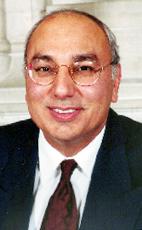We took action. I do not know where the Reform members were; maybe they were sleeping. Look at the boards we got rid of. That bill was recently discussed. Look at the number of patronage appointments we have dropped: one-third. I have to hand it to the Minister of Intergovernmental Affairs who has reduced the number of political appointments from 3,000 to 2,000.
We are not a party that wants to add. We want to reduce. We want to look at what federal agencies make sense and what ones do not, what are duplications and where changes need to be made. Those members should wake up. They should learn to understand and hear, not just listen.
The bill that was before the House recently talked about a comprehensive program review on which the Minister of Intergovernmental Affairs has done an excellent job. It will look from the bottom up in a comprehensive review.
Too often government keeps adding programs. We have learned that now is the time to do a very comprehensive review and ask: "Do we need this program? Does it make sense? Is it relevant today? Is the structure correct?" We have taken action and we will continue to take action on those programs.
If we look at the reductions of numbers on boards, some boards have been totally eliminated and other boards have had their numbers reduced. We can cut but there is a limit. We can only cut so much. I know Reform members want to slash and burn everything totally but that is not the solution. Those members do not understand we have to build the infrastructure, whether it is the cultural infrastructure or the scientific infrastructure.
If Reform members would listen they would learn something but too often they are not listening.
People always want to build silicone valleys and tremendous infrastructures. Those cannot be done overnight. But it can be destroyed overnight by slashing the budgets. Members of the Reform Party were the people who were against the infrastructure program. They do not have a very good understanding of how important infrastructure is, whether it is the road system or the communication system. All those systems are very important.
As a business person I know how important that is. If a business person wants to transport goods some 100 miles away, without a good road system it could take four hours instead of two hours, which would be more expensive. Therefore, good infrastructure is very important.
The members of the Reform Party keep talking about this huge tax increase coming up. They know it is not true. Why are they doing it? It is because their membership is dropping and they want to increase their membership. They have sent out a brochure with all sorts of figures. In the middle of that brochure, lo and behold, is a membership form. What does it say? It says: "Join the Reform Party". It is political opportunism. Shame on you. Let us give the reality to the Canadian public. Let us give the truth.
We have to deal with the deficit and we have a clear program. As I said earlier, if the Reform members would listen they would learn but too often they have this one narrow view. Any other view to them is totally out.
We have to deal with the deficit. We have to do it with a rational, realistic and reasonable approach. We have set ourselves very clear targets. We set them during the election and we are going to follow through. We said we were going to bring the deficit down to 3 per cent of GDP in the first three years.
The members of the Reform Party had this crazy plan zero in three. They have abandoned that and are now calling it zero in five. They want to do it over five years now. They have realized that it cannot be done in three years.
Part of dealing with a deficit is not only dealing with the expenditure side but dealing with the revenue side as well. We have to make sure there is economic growth and confidence in the economy. Under the Reform program you would take $40 billion out of the economy over three years. Is that going to build confidence in the economy? Is that going to create economic growth? Absolutely not. That is why a rational and reasonable approach is very important.
Reform members always talk about the pension-

